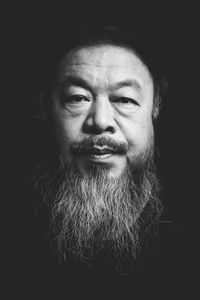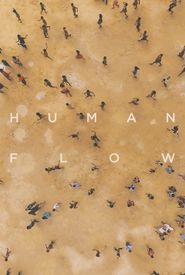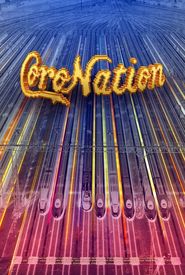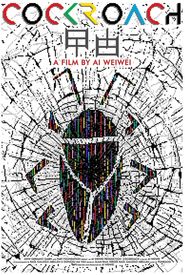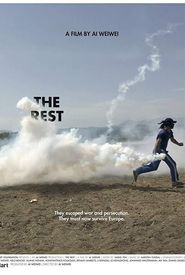Ai Weiwei, a preeminent Chinese contemporary artist and activist, emerged from a humble upbringing in the distant north-west region of China, where he was confronted with arduous circumstances resulting from his father's forced exile.
Ai Weiwei's unwavering commitment to upholding the principles of democracy and human rights has consistently led him to boldly confront the Chinese Government's stance on these crucial matters, his unflinching determination to shed light on the truth unrelenting in the face of potential adversity.
Through his tireless investigative work, Ai Weiwei has fearlessly exposed widespread government corruption and cover-ups, his groundbreaking research and discoveries most notably highlighted by the Sichuan schools corruption scandal, a shocking revelation that emerged in the aftermath of the devastating 2008 Sichuan earthquake, an event that left an indelible mark on the nation and the world.
His unwavering commitment to the truth has made him a beacon of hope for those seeking justice and transparency, his unshakeable resolve in the face of adversity a testament to his unyielding dedication to the values of democracy and human rights.
As a result, Ai Weiwei's work has not only exposed the dark underbelly of government corruption, but has also inspired a new generation of activists and advocates to take up the mantle of fighting for these fundamental human rights, his legacy a powerful reminder of the importance of speaking truth to power and standing up for what is right, even in the face of overwhelming opposition.
Ai Weiwei's journey began in 2011, when on April 3rd, he was unexpectedly detained at Beijing Capital International Airport, sparking widespread concern and speculation about the nature of his arrest. According to reports, Ai Weiwei was allegedly taken into custody on suspicion of economic crimes, but his subsequent 81-day detention without charge left many questioning the validity of these claims.
Despite the challenges and hardships he faced during this tumultuous period, Ai Weiwei has since re-emerged as a prominent figure in Chinese cultural development, his creative vision and innovative spirit continuing to shape the country's artistic landscape. As an architect, he has made significant contributions to the field of Chinese modernism, his unique blend of traditional and contemporary styles influencing a new generation of designers and artists.
Moreover, Ai Weiwei has established himself as one of China's most vocal and influential political commentators, using his platform to speak out on issues of social justice, human rights, and government accountability. His unwavering commitment to free expression and his willingness to challenge the status quo have earned him both admiration and criticism, but his impact on Chinese society and culture is undeniable.
Today, Ai Weiwei remains a powerful symbol of artistic resistance and a beacon of hope for those seeking to create positive change in China. His remarkable story serves as a testament to the enduring power of creativity, courage, and conviction, inspiring countless individuals around the world to stand up for their beliefs and fight for a better future.
Ai Weiwei's multifaceted artistic endeavors, comprising sculptures, photographs, and public installations, serve as a powerful medium for conveying his deeply held political beliefs and introspective personal reflections.
Through his artistic expressions, Ai Weiwei masterfully weaves together his own unique voice with the rich cultural heritage of traditional Chinese art, skillfully juxtaposing timeless aesthetics with the urgent concerns of contemporary China.
By doing so, Ai Weiwei's works boldly address the nation's most pressing political and social issues, imbuing his creations with a sense of urgency, relevance, and profound emotional resonance.
As a result, his art assumes a dual role, both as a powerful tool for social commentary and as a deeply personal reflection of the artist's own experiences, emotions, and convictions.
Through his innovative and thought-provoking creations, Ai Weiwei continues to captivate audiences worldwide, inspiring a new generation of artists, thinkers, and social activists to engage with the complex issues of our time.
Biography:
Ai Weiwei was born on August 28, 1957, in Beijing, China. He is the son of renowned Chinese poet Ai Qing and was raised in a family deeply rooted in Chinese culture and politics.
Ai Weiwei's early interest in art was fostered through his studies at the Beijing Film Academy, where he honed his skills in film and animation. However, it was his collaboration with his father on a series of cultural projects that marked the beginning of his journey as an artist.
In the 1980s, Ai Weiwei became a prominent figure in the Chinese avant-garde movement, known for his experimental and often provocative works that challenged the country's rigid artistic norms.
Throughout the 1990s and early 2000s, Ai Weiwei continued to push the boundaries of his art, exploring themes of identity, politics, and social justice through a wide range of mediums, from sculpture and installation to photography and film.
In 2008, Ai Weiwei gained international recognition for his design of the "Bird's Nest" stadium for the Beijing Olympics, a project that sparked controversy due to its perceived lack of cultural relevance and the artist's own criticisms of the government's handling of the event.
In the years that followed, Ai Weiwei's work became increasingly focused on issues of human rights, social justice, and government censorship, earning him numerous awards and accolades, including the Václav Havel Prize for Creative Dissent.
Today, Ai Weiwei is widely regarded as one of the most important and influential artists of his generation, known for his unwavering commitment to artistic freedom and his unshakeable determination to challenge the status quo.
Ai Weiwei, a renowned artist and advocate for human rights, relocated to Berlin, Germany, after his release from detention in 2015, before subsequently settling in Cambridge, UK, where he now resides with his loved ones.
